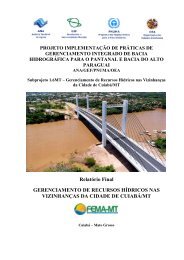Rt€@lll
Rt€@lll
Rt€@lll
Create successful ePaper yourself
Turn your PDF publications into a flip-book with our unique Google optimized e-Paper software.
- 255<br />
PLA}$ED REGIO{AL CO.@ERATIq{ IN EAST ASIAN SEAS Fffi ]{O{.OIL<br />
POLLUTIO{ RESEARCH . PROBLEMS AhD POSSTBIf SOLUTIO{S<br />
Amendo F. Kapauan<br />
Department of Cl=mistry, Ateneo de Manila University<br />
Loyola Heights, Quezon City, Philippines<br />
ABSTRACT<br />
Tle monitoring of pollutants other than oil in the marine environnent as part<br />
of a Regionel Seas programme requires a rientific infrestructure that does not<br />
yet exigt in the developing countries of South-East Asia. Crcating this<br />
infrastructure requires solutione to institutional problems, patial and terrporal<br />
requirements and constraints, and the difficulties of assembling national research<br />
infrastructureg. The quality of technical personnel must be improved through<br />
rypropriate selection and training. Such training could elso help to eolve<br />
difficulties with equiprnent maintenance and calibration.<br />
Introduction<br />
Regional co-qeration in the seas common to the East Asian countrieg of Malaysia,<br />
Singapore, Thailand, Philippines and Indonesia has begun with zupport from the United Nations<br />
Environrent Pmgramme. Nunerous papers, pertinent to the East Asian region and to the<br />
verious other Regional Seas programmes, have been written about such co-qerative research<br />
projecte. This short paper sttenpts to focus m st)me important problems associeted with<br />
non-oil pollution regearch in the East Asian seas. The Philippines is emphasized as being<br />
'typicel' of the developing countriee involved with rcspect to various capabilities required for<br />
participation in anch e regional co-qeration project. This analysis will focus m the probbms<br />
sssociated with nnnitoring pollutants other than oil, which is a core conponent of the<br />
Regional Seas programmes.<br />
Inetitutional problems<br />
Unlike many developed eountries with well established research traditions in both the<br />
basic end pplied fields, rnany of the developing countries in the region have few well<br />
developed regearch institutions. Tlpse they have are ueually very ryecialized, having been<br />
established to sr.rpport economically important ectivities in these countries (e.9. rubber in<br />
Malaysia, c-oconut in the Philippines). Thus in gn erea such s non-oil pollution research in<br />
the marine environnent, institutions ere either non-existent or not as fully developed as<br />
would be required for a regional nnnitoring prograrnme.<br />
However, a carefut look at the totat capabilitiee within any given country shows that<br />
the ingredients that strould go into nrch a Regional Seae programme alreedy exist in fully<br />
developed form, or rnarly so, in bits ond pieces among several other institutions. In the<br />
Philippines, for example, facilities of the Philippine Coast Guard, Tle Bureau of Coast and<br />
Geodetic Survey, the Nationel Pollution Control Csnmission, the Philippines Atomic Energy<br />
Cqnmigsion, the Fmd and Nutrition Resesrch Center, the Univeraity of the Philippines and<br />
me or two other mivergitieg, taken together, yield a fairly eomplete eystem for cJeh en<br />
undertaking. Similar steternents could be rnade for Malaysia, Thailand, and Indmesia.



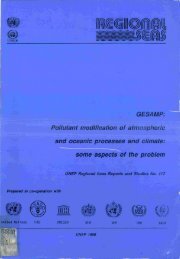
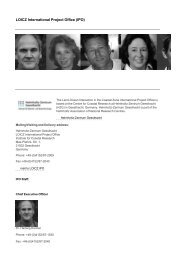
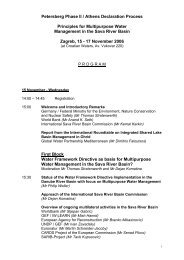
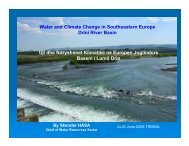
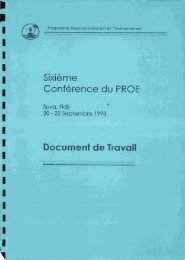
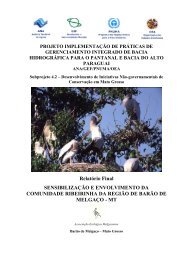
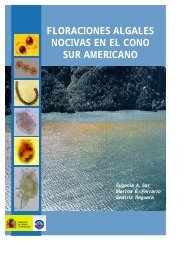
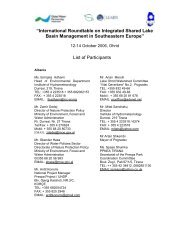

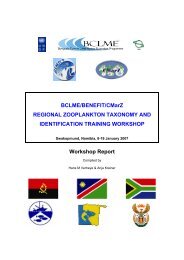
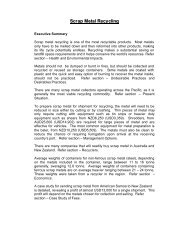
![R]€@lll](https://img.yumpu.com/7594335/1/175x260/reurlll.jpg?quality=85)
